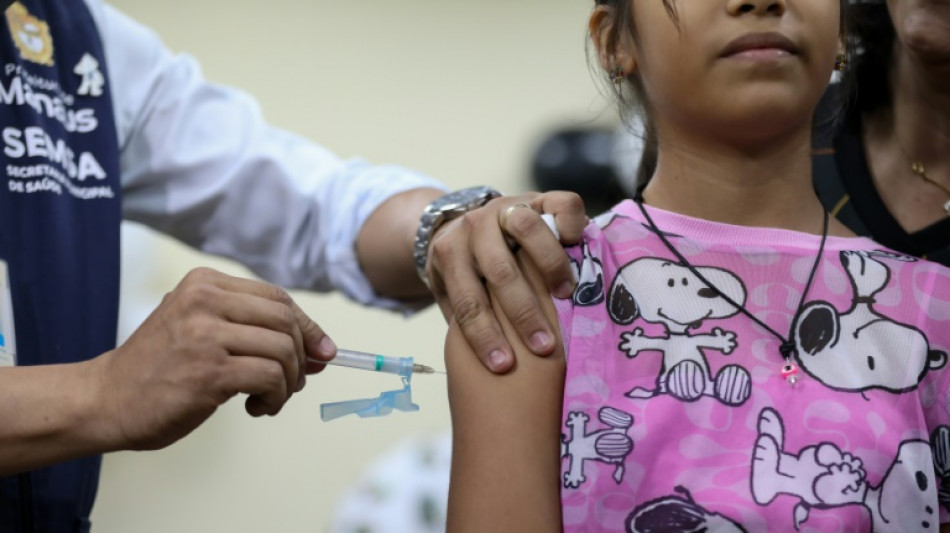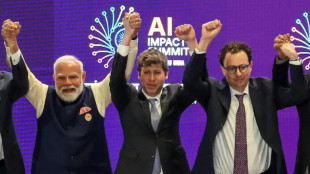

Child vaccine coverage faltering, threatening millions: study
Efforts to vaccinate children against deadly diseases are faltering across the world due to economic inequality, Covid-era disruptions and misinformation, putting millions of lives at risk, research warned Wednesday.
These trends all increase the threat of future outbreaks of preventable diseases, the researchers said, while sweeping foreign aid cuts threaten previous progress in vaccinating the world's children.
A new study published in The Lancet journal looked at childhood vaccination rates across 204 countries and territories.
It was not all bad news.
An immunisation programme by the World Health Organization was estimated to have saved an estimated 154 million lives over the last 50 years.
And vaccination coverage against diseases such as diphtheria, tetanus, whooping cough, measles, polio and tuberculosis doubled between 1980 and 2023, the international team of researchers found.
However the gains slowed in the 2010s, when measles vaccinations decreased in around half of the countries, with the largest drop in Latin America.
Meanwhile in more than half of all high-income countries there were declines in coverage for at least one vaccine dose.
Then the Covid-19 pandemic struck.
Routine vaccination services were hugely disrupted during lockdowns and other measures, resulting in nearly 13 million extra children who never received any vaccine dose between 2020 to 2023, the study said.
This disparity endured, particularly in poorer countries. In 2023, more than half of the world's 15.7 million completely unvaccinated children lived in just eight countries, the majority in sub-Saharan Africa, according to the study.
In the European Union, 10 times more measles cases were recorded last year compared to 2023.
In the United States, a measles outbreak surged past 1,000 cases across 30 states last month, which is already more than were recorded in all of 2024.
Cases of polio, long eradicated in many areas thanks to vaccination, have been rising in Pakistan and Afghanistan, while Papua New Guinea is currently enduring a polio outbreak.
- 'Tragedy' -
"Routine childhood vaccinations are among the most powerful and cost-effective public health interventions available," said senior study author Jonathan Mosser of the US-based Institute for Health Metrics and Evaluation (IHME).
"But persistent global inequalities, challenges from the Covid pandemic, and the growth of vaccine misinformation and hesitancy have all contributed to faltering immunisation progress," he said in a statement.
In addition, there are "rising numbers of displaced people and growing disparities due to armed conflict, political volatility, economic uncertainty, climate crises," added lead study author Emily Haeuser, also from the IHME.
The researchers warned the setbacks could threaten the WHO's goal of having 90 percent of the world's children and adolescents receive essential vaccines by 2030.
The WHO also aims to halve the number of children who have received no vaccine doses by 2030 compared to 2019 levels.
Just 18 countries have achieved this so far, according to the study, which was funded by the Gates Foundation and the Gavi vaccine alliance.
The global health community has also been reeling since President Donald Trump's administration drastically slashed US international aid earlier this year.
"For the first time in decades, the number of kids dying around the world will likely go up this year instead of down because of massive cuts to foreign aid," Bill Gates said in a separate statement on Tuesday.
"That is a tragedy," the Microsoft co-founder said, committing $1.6 billion to Gavi, which is holding a fund-raising summit in Brussels on Wednesday.
A.Conti--GdR



